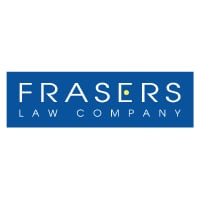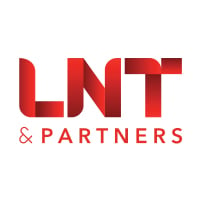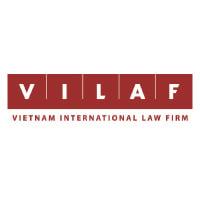
Head of legal and contract manager | Ricons Construction Investment




Tong Thi Thu Thao
Head of legal and contract manager | Ricons Construction Investment
What are the most significant cases or transactions that you have been involved in over the past year?
In my current role, I concurrently serve as both Head of Legal and Contract Manager for a construction contractor. Alongside ensuring that all company activities comply with legal regulations, I have been extensively involved in legal risk assessments, drafting, negotiation, compliance advisory, and dispute resolution related to construction contracts in Vietnam. These encompass residential, industrial, and infrastructure projects with diverse funding sources.
I have provided legal consultations to ensure compliance for over 50 construction projects across Vietnam, which include high-rise buildings, hotels, resorts, industrial workshops, and infrastructure projects. My primary focus has been advising on claims related to extensions of time (EOT), variations, payments, and procedural issues specific to the construction projects.
In particular, throughout 2023, beyond assisting with private construction projects where our company acts as the general contractor, I represented our legal teams within a consortium of contractors during the bidding and finalisation of construction contracts for two major infrastructure projects in Vietnam: Long Thanh International Airport and Terminal 3 of Tan Son Nhat International Airport. These two contracts collectively amount to approximately US$1.7bn.
Moreover, my role in corporate legal affairs has afforded me the opportunity to be actively involved in almost all aspects of corporate operations. This includes handling legal matters related to labour, intellectual property, project transactions, and, particularly, public company governance. I have managed legal issues concerning shareholders, the board of directors, corporate structure, and regulatory compliance with Vietnamese disclosure regulations, as Ricons Construction Investment is a public company, though not listed.
What innovations have you made to the way your legal team works in the past year?
In the past year, I have introduced some innovations to enhance the efficiency of our legal team, particularly in terms of communication and developing strategies that align with the operational needs of the company over time. Our company is primarily engaged in construction contracting, with the core production teams—the project management boards—spread across multiple sites throughout Vietnam, while the head office is fixed in Ho Chi Minh City. This geographical dispersion, coupled with the need to bridge technical and legal considerations, presents unique challenges. To address these, we have focused on the following key improvements.
Firstly, rather than only involving the legal team when issues arise or when technical teams request guidance, I proposed to our leadership that a Contracts Department be established within the Legal Department. This department now participates in all stages of the bidding process and leads contract negotiations upon successful bids. By doing so, we ensure that contracts are fully developed before they are handed over to the operations team.
Secondly, once a contract has been signed and transferred to the operational teams, a legal representative convenes a handover meeting. During this meeting, we provide a summary guideline that outlines key risks and specific contractual provisions for the project management team. We also offer tailored recommendations for each project regarding procedures for claims of EOT, variations, payments, and so on. This approach ensures that the project teams fully understand project-specific requirements. Throughout the execution phase, our Legal Department continues to support the project teams by responding to legal questions or conflicts that may arise, offering a supplementary perspective to aid them.
By prioritising proactive engagement and strong connections between our legal and operational teams, our Legal Department is better positioned to stay closely aligned with the on-the-ground realities of each project. This approach allows us to promptly address emerging challenges and deliver timely legal support where it is most needed.
Based on your experience, what is the key to collaborating successfully with business partners?
The key to successful collaboration with business partners lies in being proactive, maintaining effective communication, and engaging early to ensure alignment between legal and business objectives, taking commercial considerations into account rather than focusing solely on legal issues.
The role of in-house legal counsel is not one of passively waiting for specific tasks to be assigned, as an external client might seek out a legal service. Instead, it involves an active and proactive understanding of the company’s operations, strategic goals, and unique business characteristics. This includes regularly updating relevant legal regulations, clearly explaining risks and legal requirements – even in the absence of specific requests from senior management – and listening to the objectives and concerns of the business team to provide timely support.
By maintaining this proactive approach and ensuring transparent communication in all reporting, the in-house legal team builds trust and ensures that both sides clearly understand the issues at hand with the shared goal of mutual growth. The legal team leader should develop strategies to position the legal function as a facilitator, not a barrier, helping the business achieve its objectives more effectively within the legal framework.
Which political, economic or regulatory changes have impacted your work the most in the past year?
Several political, economic, and regulatory changes have impacted my work in the past year, both positively and negatively. Notably, I view the challenges in our industry as opportunities for the legal team to engage with complex situations, enhancing our problem-solving capabilities and our role within the business.
The broader economic difficulties have affected costs, debt recovery, capital availability, and competition among construction firms. These challenges have significant implications for all departments, including legal. Our legal team faces increased pressure to ensure timely debt collection, balance contract terms, and mitigate risks, not only from a legal standpoint but also from financial and operational perspectives, to protect the company’s interests throughout project execution.
The Vietnamese government has introduced new laws and updated existing regulations in areas such as construction, environmental protection, land use, housing, and real estate development. These changes have directly impacted project owners and contractors alike, leading to new compliance requirements and adjustments in project execution. Consequently, our legal team has had to navigate these updates to support the company’s compliance efforts effectively.
The increasing emphasis on ESG standards has prompted the construction industry to innovate in both business operations and compliance practices. This shift has necessitated adjustments within our legal framework to align with sustainable and responsible business practices, further influencing how our team supports the company’s evolving strategic priorities.
How do you motivate and manage the other members of your legal team well?
To effectively motivate and manage my legal team, I focus on balancing strong leadership, clear communication, and opportunities for personal development. I lead by example, providing guidance and solutions when needed, while ensuring that tasks are communicated clearly to avoid misunderstandings. I also create a supportive environment that encourages team members to embrace challenges and take responsibility, fostering personal growth and accountability. Additionally, I prioritise professional development through training and workshops, which enhance skills, promote career progression, and strengthen team cohesion, ultimately deepening their connection with the company.
Head of legal and contract manager | Ricons Construction Investment